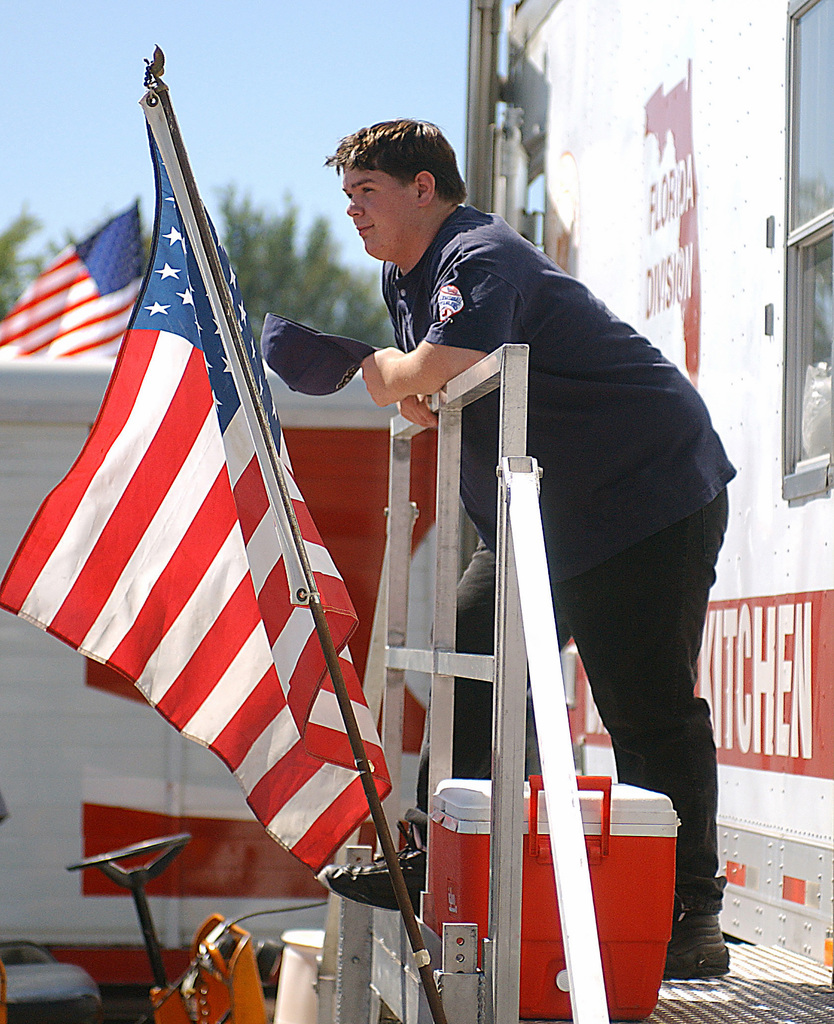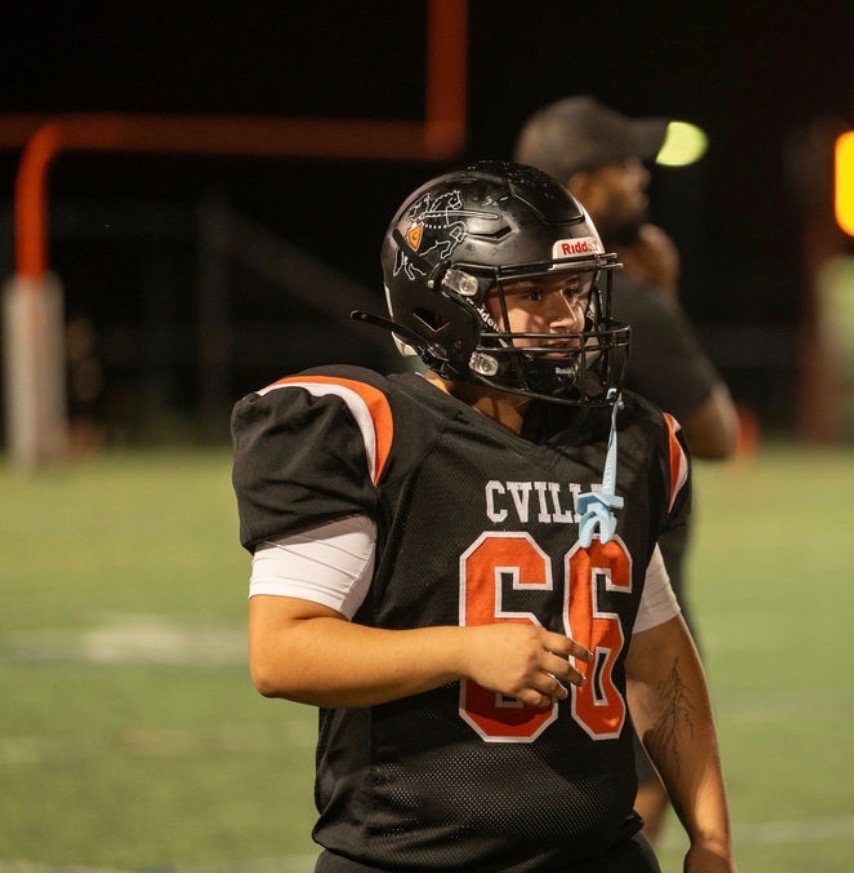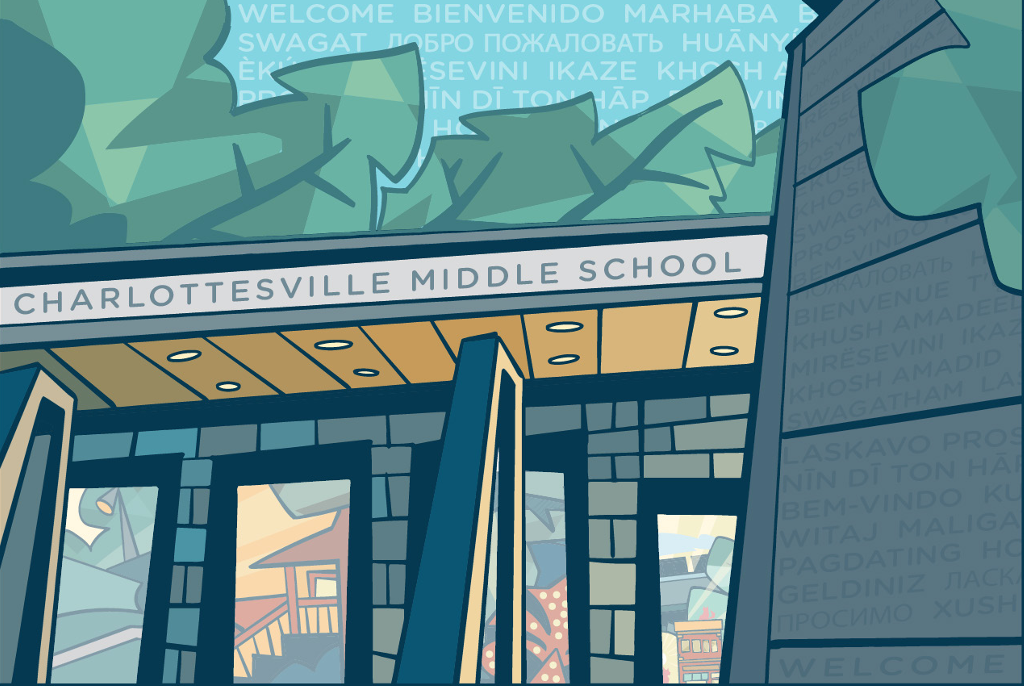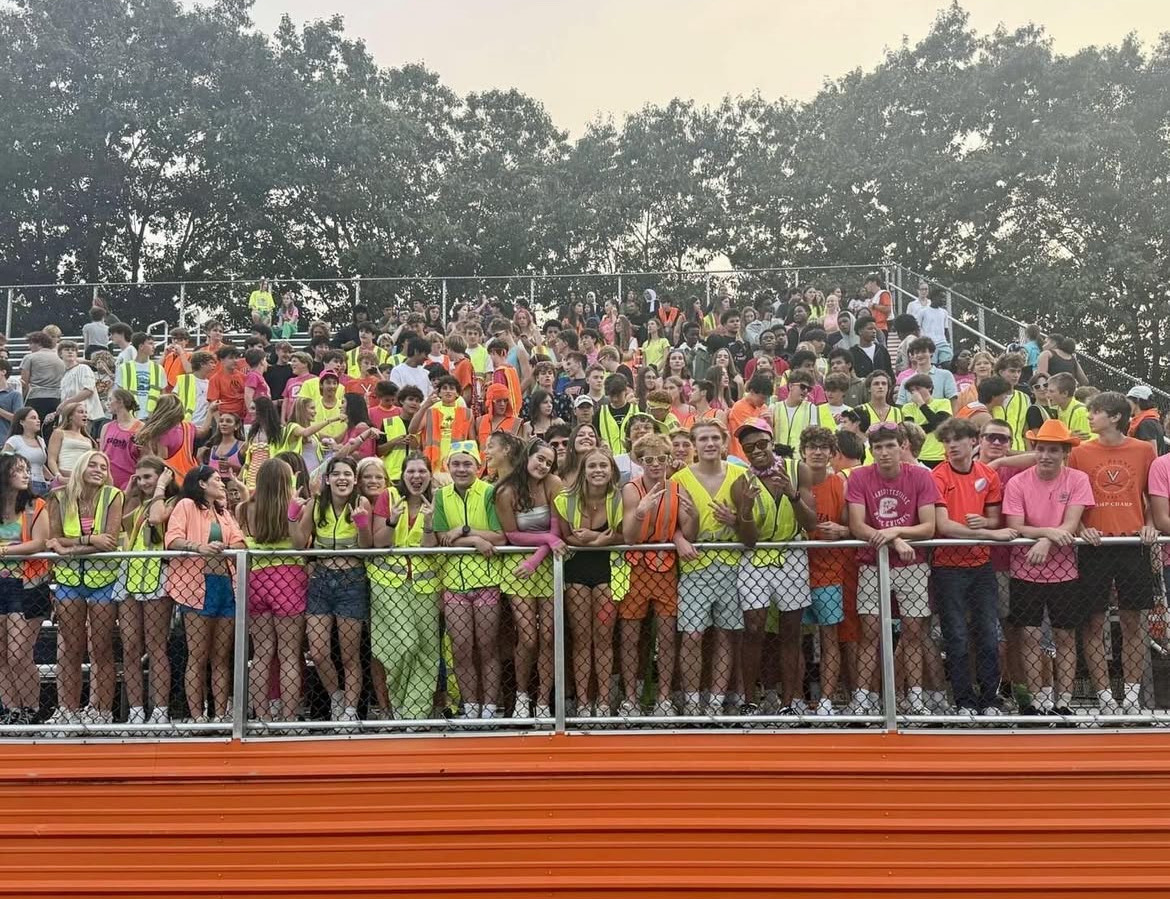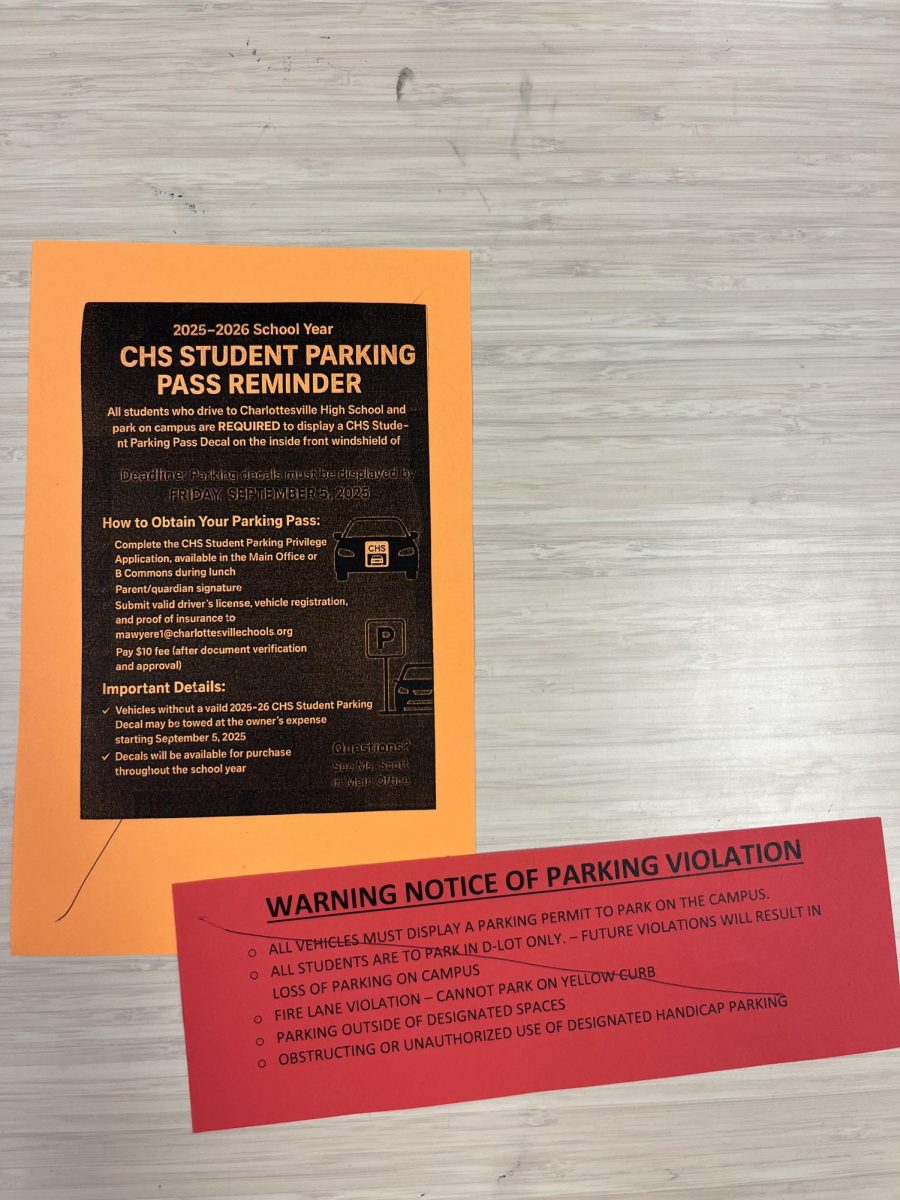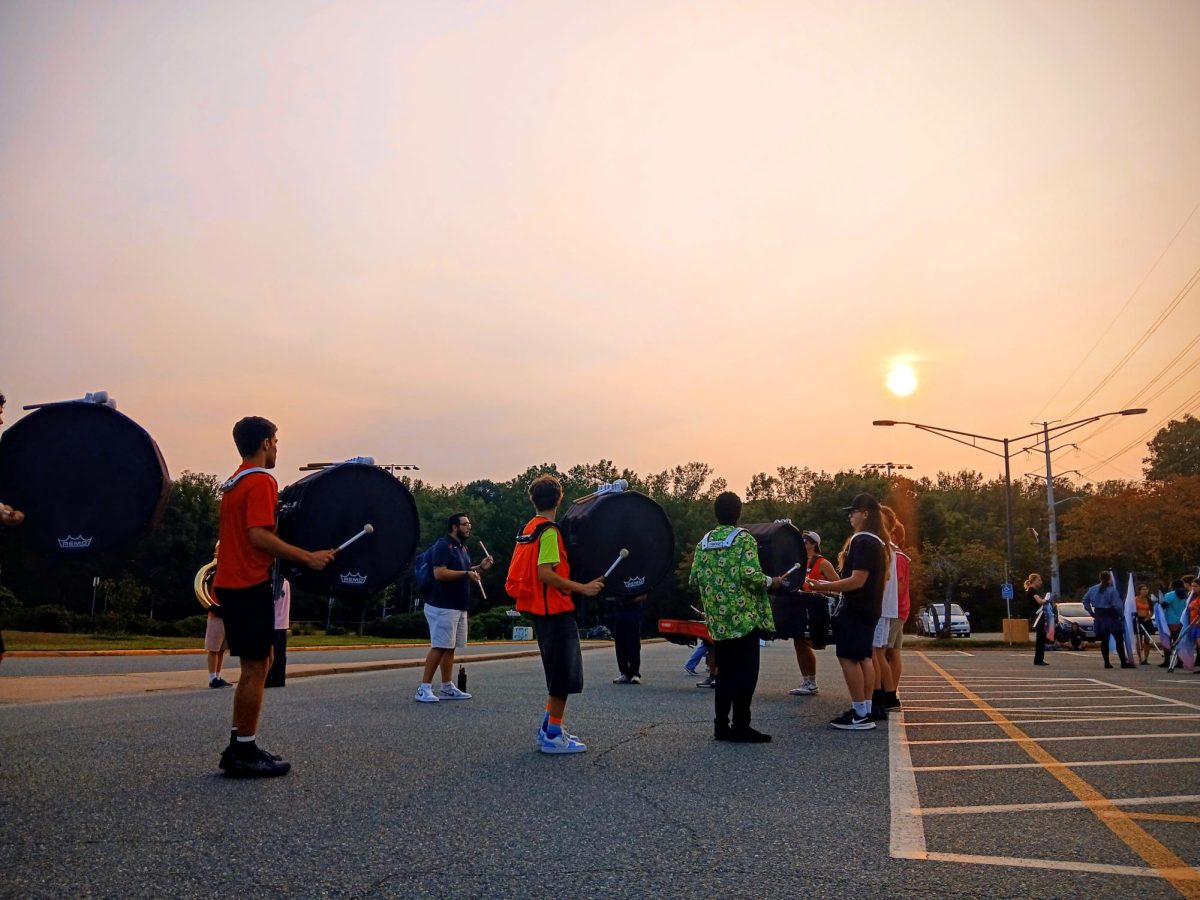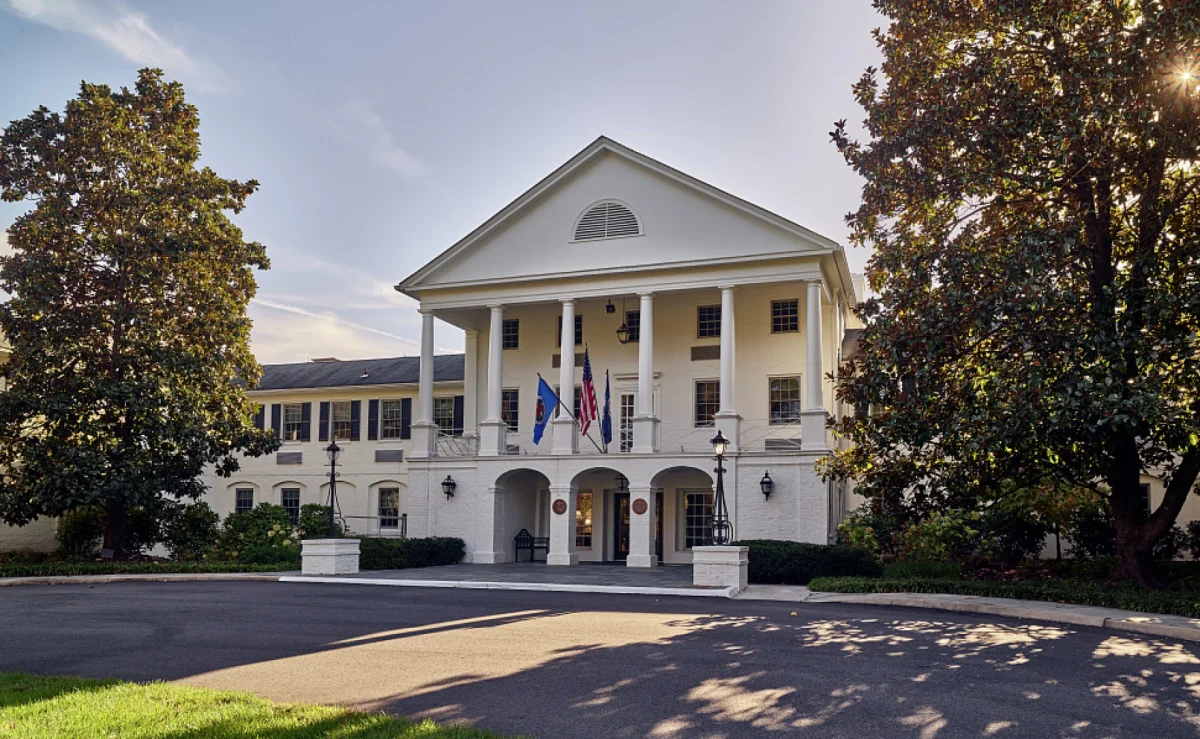Following a firm push from some parents, staff, students, and community members for more clarity of what disciplinary actions entail at Charlottesville High School, the division is continuing to take steps. Most students are aware of the increase in use of the In-School Behavioral Intervention program, or ISBI, in the recent months at CHS. The covered windows of the locked door beneath the A200s serves as a space of discipline for students at the high school. Recently, however, there is an increasing volume of students in this space, and so has the demand for a more effective system.
As students, staff, parents, and community members gathered together in the cafeteria for the school board “listening session” on Thursday, November 30, a presentation of action items of the division were presented. A strong focus on changes implemented involve the procedures and use of ISBI. “We have lockers so the students put all of their personal belongings, including cell phones,” Chief Operations Officer Kim Powell described at the meeting. Additionally, new ISBI policies were described under the ‘Actions Completed’ slide, while Powell stated that they are still working to “put forth a curriculum for students” to ensure that ISBI is a “learning environment, and not just social hour.”
Much of the meeting consisted of Powell and Chief Academic Officer for the division, Katina Otey, referring to the Student Rights and Responsibilities handbook, a forty-page document that can be found on the CCS website. The handbook is meant to clearly explain disciplinary actions taken on students, and while ISBI is clearly used every day, there isn’t much information about what actions lead to this program. In the building, it is known to be a consequence in which students are pulled from their classes to work quietly in the room until the day ends. Actions such as skipping class, roaming the halls, or disrespect towards staff can result in ISBI, but in the handbook itself, this isn’t stated. Many students remain confused about what this program really is, as the lines between detention, suspension, and ISBI are often blurred in their eyes. ISBI is mentioned at only one point in the document– page seventeen– in which it states that failure to attend disciplinary settings, such as ISBI, requires a Category B response of discipline. This section is described as “behaviors related to School Operations (BSO) interfere with the daily operation of school procedures.”
While the program is familiar to those in the building, it isn’t to the pages of the handbook. At the start of the year, controversy around the room emerged, not necessarily due to its unknown criteria, but for its leadership. At the start of the school year, a position was filled for the In-School Behavioral Intervention facilitator. However, as seen by an online job posting for this position on November 14, Charlottesville High School no longer has a facilitator for the program. With that, many different staff members have covered the room and assisted with the program this fall.
Notably, Mr. Paul Jones spent lots of his time across the hall from his new office in ISBI. After his shift from Assistant Principal to becoming the Student Support Specialist this year, Mr. Jones said that he covered the room because there wasn’t anyone else to cover it at that point in time. “One day, administration covered it and in my mind, as a former administrator and as an educator, I believed that it was more important that administrators were out in the halls working with the day-to-day operations of the school instead of taking time to [oversee] ISBI,” Mr. Jones stated. “The reasons why no one was covering it didn’t matter to me, what mattered is that if the administrators were out in the building, the students’ needs would be met and they would feel more comfortable. Sometimes you have to do what you don’t want to do for the better of your community. I’m gonna do what I need to do to support the school.”
Amidst these recent changes to the ISBI program, Mr. Jones made it clear that he would no longer be spending time in the room, but reflected upon his time in that role thoughtfully. “I take ownership that during the time I was covering it, it became a space for kids to talk and for me to listen. A lot of the time, students would come to me to de-escalate and process things. It was good that they felt comfortable talking to me, but I also want every student in class to take full responsibility and to take advantage of the opportunity of learning all you can. I felt bad that there were people coming because I was in there and I wanted them in class, but we also want them here in this building, and I would rather have eyes on them than see them walking the halls. I want to see success for every student in this building.”
Walking into school on the Monday after the break, the room was immediately in the process of its transformation. New desks have been put in that are meant to be “bigger and give a sense of space and privacy to the students,” as Jones described in a recent interview with KTR. Additionally, the administration is enforcing that students put all of their belongings in lockers outside of the room, aside from their Chromebooks. From there, they are expected to do schoolwork diligently facing the cloud-covered walls.
With these new changes, however, the ISBI program is on its course to serve the building effectively. “Contrary to what people believe, you have a choice,” Jones said. “Students need to be ready to face the consequences for the choices they made– both the good and the bad consequences. Non-negotiable expectations therefore should be followed. I expect so much from my students. Sometimes a student will come in and tell me about a good grade and I’ll be so happy for them, and I’m not shocked when that happens. I am so excited and happy for them, but I believe in my kids so much that I expect those great things from them. No one has ever wanted to fail. Everyone wants to succeed at something.”
Mr. Jones has served at CHS striving for the well-being and success of his students, as he said, and his time covering ISBI reflects that. Although the future leader of the program hasn’t been decided, Jones can still be found in his office right around the front desk. “I think that if we approach these changes in the correct manner and follow through and help students understand that we all have to make different choices and change, it’s for the betterment for everyone in this building.”



